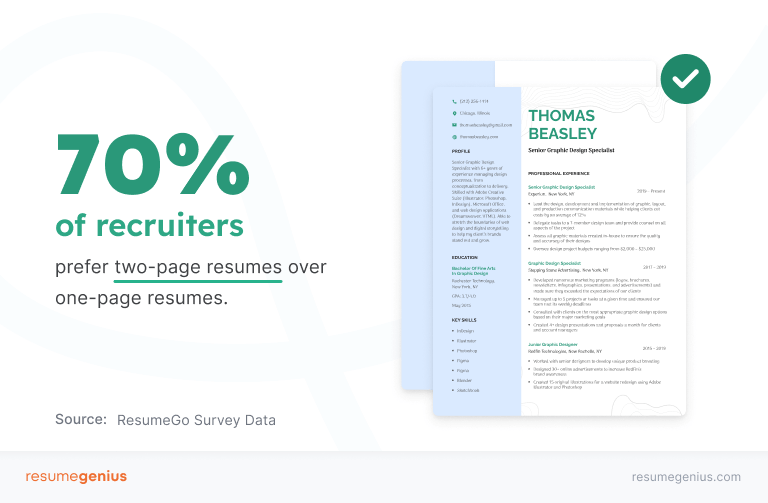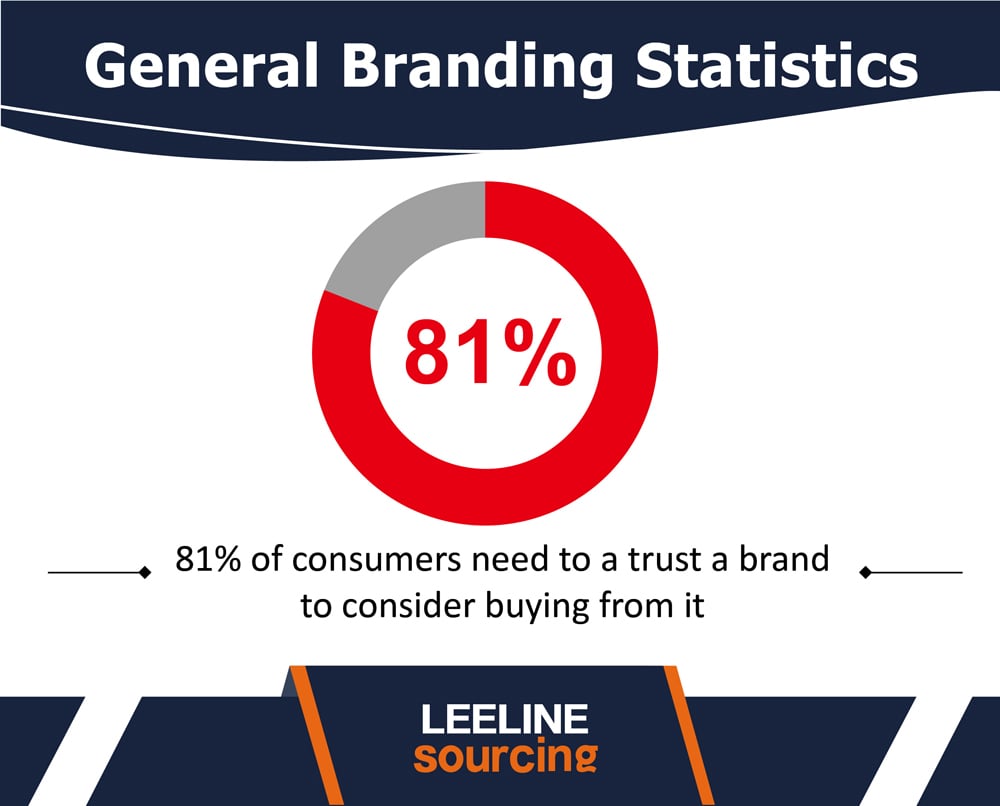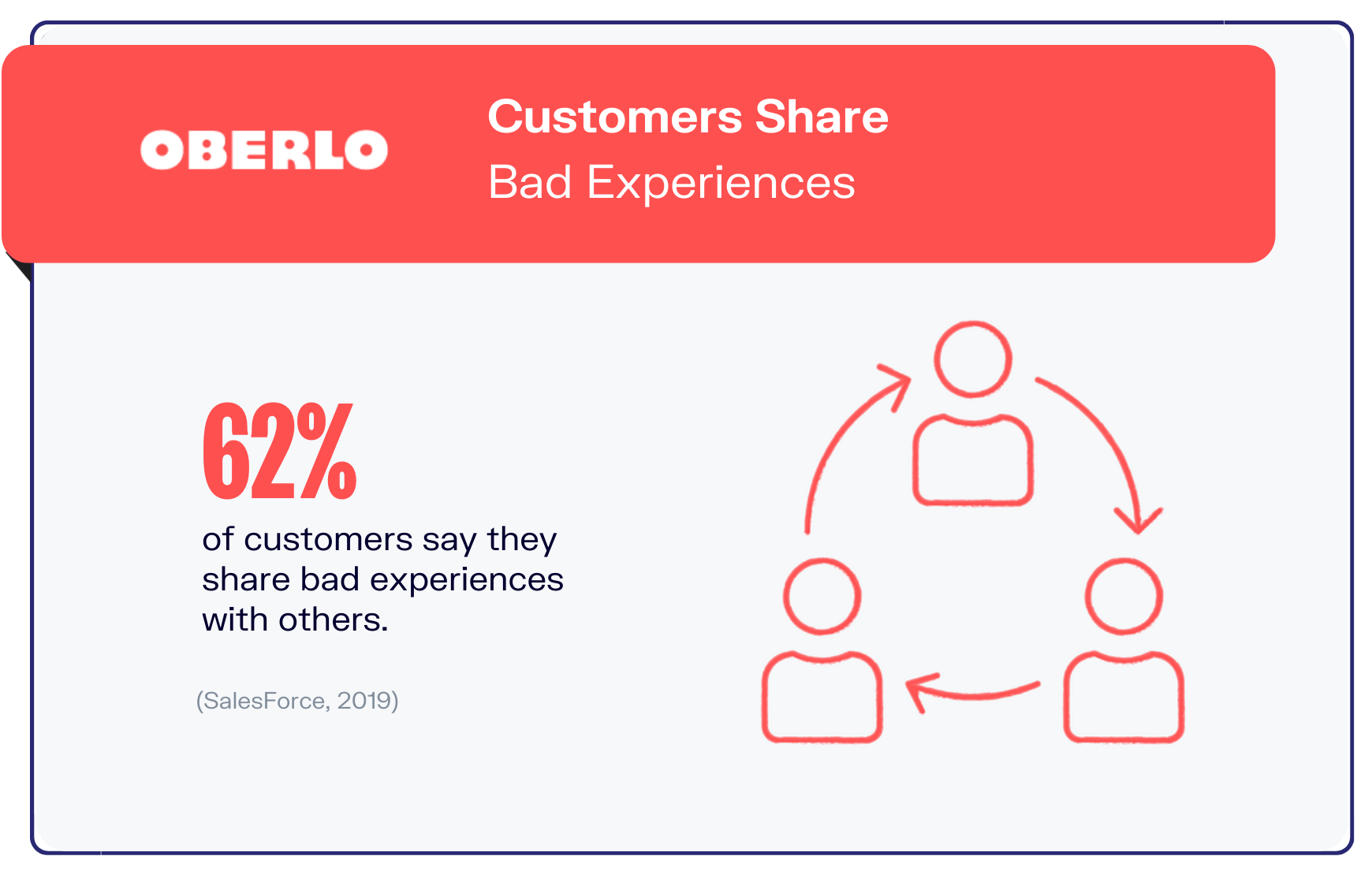The resume writing industry is estimated to bring in $304.6 million in 2024. With over 150 million resumes created each year, it’s clear there is no shortage of demand. As remote work explodes and economic uncertainty looms, job seekers need resume writers more than ever to stand out.
The resume writing market remains largely fragmented, with independent writers and small agencies competing for clients. This presents a major opportunity for entrepreneurs to build scalable resume-writing businesses. The barriers to entry are relatively low yet the income potential is high.
This guide will help you understand how to start a resume writing business. Topics include market research, competitive analysis, registering an EIN, obtaining business insurance, marketing, customer focus, and more. Here’s everything to know about starting your own resume and career coaching business.
1. Conduct Resume Writing Market Research
Market research is important to starting a successful resume writing business. It offers insight into your target market, trends in the resume writing service market, and local market saturation. Research provides valuable information for a resume service business plan.

The current resume writer market remains fragmented, with over 12,000 small, independent writers and boutique agencies competing for business. The top 10 resume-writing companies account for just 16% total market share, though consolidation is expected as the industry matures. Larger players are focused primarily on scale through online platforms vs white-glove services.
This fragmentation coupled with the vast market opportunity has produced strong economics. The average resume writer charges $150-$400 per document, with senior executive writers commanding fees over $1,000. Writers can service between 10-40 clients per month working full time.
The rise of remote work and economic uncertainty has accelerated demand, as has growth in hiring for middle-skill jobs requiring nuanced resume positioning. Investing in professional resume writers offers compelling ROI – those working with writers are 3x as likely to land interviews and can achieve as high as a 700% ROI if they land the job.
The resume-writing industry is experiencing rapid growth driven by favorable macroeconomic trends and an underpenetrated addressable market. The lack of sophisticated competition makes it an attractive space for aspiring entrepreneurs to launch high-margin businesses.
2. Analyze the Competition
When launching a resume writing business, analyzing the competition is crucial to positioning yourself advantageously to gain market share. Some ways to get to know local professional resume writing services include:
- Start by identifying competitors online within your geographic target area.
- Search Google Maps for terms like “resume services near me” and compile a list of businesses appearing in the results and map pack top listings.
- Visit the website and social media pages of each competitor to evaluate the brand positioning and messaging, service offerings, and pricing models.
- Make notes on strengths and weaknesses compared to the envisioned positioning for your own business.
- Pay attention to the aesthetics of the online presence and reviews as you qualitatively assess the competitor set.
- You can quantitatively size up online competitors by looking at metrics of social media followers, website traffic rankings on Alexa, and domain/page authority scores on Semrush.
- While resume writing is often entirely virtual, some boutique agencies operate brick-and-mortar storefronts.
- Drive around your target geography and take inventory of any physical offices dedicated specifically to resumes, CVs, or career services.
- Walk into each location as a mystery shopper and evaluate factors like customer service, ambiance, branding, and materials available.
Analyzing competitors provides objective benchmarks to understand the competitive landscape and identify unmet market needs your new resume-writing business can serve. It also gives context to strategically position your brand messaging.
3. Costs to Start a Resume Writing Business
When starting a resume writing business, the upfront costs to get off the ground are typically under $5,000 for an independent solo practitioner model.
Start-up Costs
- Website Development and Hosting – Budget $500-1,500 for an attractive, functional website built on WordPress. Good web design is crucial for conveying legitimacy and professionalism. Ongoing hosting and domain registration run $300/year.
- Office Equipment & Software – With resume writing primarily done virtually, $1,000 can cover a solid computer, necessary software like Microsoft Office, an ergonomic desk setup, a printer/scanner, and other core equipment.
- Incorporation Fees – Expect $100-$800 to formally create your business entity as either an LLC or S-Corp based on state filing and registration fees. Proper legal setup brings liability protections.
- Branding & Identity Work – Logos, branding colors/fonts, business cards, and templates to present a polished, consistent brand image will run $300-$1,000 using freelance graphic designers.
In total, an entrepreneur can make the required upfront investments to commence resume writing operations for less than $5,000. Many successful writers have spent even less by handling their branding work and buying only minimal equipment.
Ongoing Costs
On the flip side, monthly operating costs tend to range from $500-$2,500 covering:
- Virtual Office Membership – $100-$300 per month for turnkey access to business amenities.
- Software Subscriptions – $50-$200 on resume/CV templates, marketing automation, bookkeeping, CRM and other SaaS tools.
- Website Hosting/Domains – Budget $20-$100 to host and power your web presence.
- Professional Associations – Industry groups offer benefits and credibility for $100-$500 per year in annual membership dues.
- Insurance – Optional but recommended with rates of $500+ annually. Protect yourself with general liability, D&O, and more niche business policies.
- Contract Employees – Many resume writers eventually hire 1-2 talented freelancers to help handle client demand and grow more profitably. Paying $25-$75 per completed resume as an employer is common.
While operating costs largely scale directly with higher client volumes, keeping fixed overhead low by leveraging modern solutions, outsourcing where advantageous and avoiding unnecessary expenses keeps resume writing a lean business model.
4. Form a Legal Business Entity
When launching a resume writing operation, structuring your business as a limited liability company (LLC) offers the best blend of personal asset protection, tax flexibility, credibility, and ease of administration if you expect to grow.
Sole Proprietorship
A sole proprietorship provides no separation between your business and personal finances. You’re subject to unlimited personal liability for company debts and legal issues. Income earned flows through directly to your SSN for tax purposes. Administrative filings are minimal but your assets get tied directly to the business, making an LLC a far better choice.
Partnership
Forming a general or limited partnership can facilitate co-ownership and pool money across partners to fund growth. However, it still exposes personal assets to substantial risk as partners have “joint and several liabilities”. Disagreements between partners can also breed complex litigation if things sour. Overall excessive liability exposure relative to other options makes a partnership ill-suited.
Corporation
Establishing a standard C-Corporation or S-Corporation creates the most formal separation between a business and owner. It can support raising venture capital and eventually selling equity. However, the legal and tax filings for a corporation are far more complex – especially around issues like employee classifications.
Limited Liability Company (LLC)
Registering as a Limited Liability Company (LLC) carves out the best middle ground. It separates your personal and company assets to limit personal liability risk. Only company assets are pursued in any lawsuits or bankruptcy. An LLC offers flexibility similar to a sole proprietorship or partnership on profit distributions rather than mandatory shareholder payments.
5. Register Your Business For Taxes
An Employer Identification Number (EIN) serves as a business’s equivalent to a social security number establishing a unique IRS identifier. All businesses except sole proprietors using only their SSN need an EIN for federal tax purposes and to open business bank accounts properly.
Obtaining an EIN is free and easy through the IRS website. The entire application takes just minutes to complete. You’ll need only basic information like your name, address, business entity type, and details about ownership structure. An EIN gets issued immediately upon submitting the form and passes IRS verification.
To apply:
- Navigate to the IRS EIN Assistant site.
- Answer a short eligibility questionnaire and select the option to apply online.
- Provide basic personal and business information covering ownership, contact data, and what the EIN will be used for.
- Print/record the EIN assignment confirmation provided as proof of your number.
In addition to a federal EIN, resume-writing businesses need sales & use tax permits and business licenses in their state to legally collect, report, and remit taxes on services provided. Requirements vary by location but often involve nominal registration fees under $100.
Taking just an hour to get an EIN and register for necessary state tax compliance keeps your resume writing endeavor operating legally as you scale from solopreneur to growing agency.
6. Setup Your Accounting
Proper financial accounting is crucial for resume-writing businesses to track income and expenses, maximize tax savings, access capital, and ensure IRS compliance. Yet many solopreneurs underestimate key accounting needs in the early days.
Accounting Software
Using small business accounting software like QuickBooks links bank accounts to automatically track income deposits and costs. This eliminates manual entry and creates reports showing real-time profitability. Connecting QuickBooks to contract worker accounts like Upwork also imports 1099 employee payments for easy year-end tax form creation.
Hire an Accountant
Hiring an accountant optimizes taxes and ensures accurate books. A good accountant may charge $150-$250 monthly for services like bank/CC reconciliation, payroll, quarterly sales tax filings, and advisor calls. Using one primarily for fiscal year-end tax preparation and an audit defense fund still runs $700-$1,500 but saves immensely on self-employment taxes.
Open a Business Bank Account
Keeping business and personal finances distinctly separate is essential. All resume writing income should flow into dedicated business accounts never intermingling with personal checking or credit cards. This avoids problematic commingling that can negate liability protections. Open a free small business checking account from banks like Chase to pay all company expenses directly.
Apply for a Business Credit Card
Applying for small business credit cards also establishes financial separation while allowing large resume package purchases, software charges, travel, and more to accrue points/cashback rewards. Issuers evaluate business card applications based mainly on your personal credit score and income docs.
7. Obtain Licenses and Permits
Resume writing is not a regulated industry requiring occupational licenses like those for doctors, lawyers, contractors, and many other professional services. Find federal license information through the U.S. Small Business Administration. The SBA also offers a local search tool for state and city requirements.
Resume writers generally operate out of home offices or small shared workspaces rather than dedicated commercial locations. Thus common small business permits like conditional use permits for zoning or public health operating permits do not apply.
The lack of major license barriers makes resume writing an accessible industry for aspiring solopreneurs to launch. Without major upfront investments to clear vocational program coursework or hundreds of hours of supervised training, anyone with strong writing skills can open shop after just a few hours spent on required business registration paperwork.
Voluntary professional certifications for resume writing do exist through organizations like Career Directors International and the Professional Association of Resume Writers and Career Coaches. Obtaining these professional designations can signal credibility and commitment to excellence.
8. Get Business Insurance
Securing proper business insurance is a crucial safeguard for resume-writing companies against financial ruin from an unforeseen catastrophic event. Without adequate coverage, a single lawsuit, accident, or data breach could permanently shutter operations given the smaller profit margins and cash reserves of most independent writers or boutique agencies.
Many entrepreneurs incorrectly assume business insurance is either unattainable or not worth the costs unless legally mandatory. They fail to account for black swan risks that could wholly undermine their company absent proper precautions.
Three illustrative examples bring the value of coverage into focus:
An injured client trips over a loose Ethernet cable lying across the floor of your home office during an in-person resume strategy consultation. She sustains a severe concussion and broken wrist from the resulting fall. Without any business liability insurance, you must cover all her medical bills out of pocket. A resulting lawsuit also names you personally as negligent.
A bad actor manages to hack your web server hosting client resume files purchased from a budget offshore hosting company with lax security protocols. The full identities and resume specifics of over 5,000 clients get leaked publicly. Lacking data breach and cyber liability coverage, regulatory fines under GDPR for the breach could cost 4% of global revenues.
A tropical storm produces a lightning strike-induced power surge that destroys $15,000 of cutting-edge computer editing equipment in your downtown executive suite office despite using a surge protector. The insured executive center has no liability.
While individually low probability events, being one catastrophe away from total failure points to the value of transferring risk through business insurance policies. Expert insurance marketplaces like CoverWallet simplify securing tiered protection well-tailored to resume writing operations. Expect costs of $500 to $1,500 annually based on total limits.
9. Create an Office Space
While resume writers can operate almost entirely virtually, having a professional office space facilitates conducting client meetings conveniently and projecting legitimacy critical for premium pricing. The right workspace for your budget depends on client volume and use case scenarios.
Home Office
A basic home office running $100 monthly for a dedicated room, ergonomic equipment, and software keeps overheard minimal for solopreneurs. Meetings can occur at coffee shops although background noise hinders confidential client discussions. Home offices also preclude walk-in clients and may be less impressive for executive customers.
Coworking Office
Coworking spaces like WeWork offer sleek, modern environments with business amenities (conference rooms, printing, receptionists) for $200-$500 monthly. They foster networking with other entrepreneurs while supporting client meetings or small team expansion. However, sound may still carry between spaces limiting confidentiality.
Commercial Office
For the highest-end positioning, a traditional multi-room office lease averages $3,000-$6,000 monthly enabling dedicated conference capabilities plus potentially room for several in-house writers/editors. Generally overkill for early-stage resume writers but useful for multi-employee agencies seeking rapid expansion room. Also maximizes branding control for diversifying services (e.g. interview prep) targeted at enterprise budgets.
10. Source Your Equipment
Resume writers need only basic equipment to deliver professional services – primarily just a reliable computer and printer. While shiny gadgets are enticing, tried and true fundamentals suffice when launching on a bootstrap budget.
Buy New
Buying new allows fully customizing configurations to your workload from retailers like BestBuy. Apple iMacs and PC laptop/desktop combos with Core i5 or i7 processors, 16GB RAM, 1TB storage, and 27″ displays provide future-proof performance for $1,000-$2,000. All-in-one color laser printers like HP handle printing needs under $500.
Buy Used
Scouring secondhand local inventory on Craigslist and Facebook Marketplace can capture major savings on computer gear from businesses and power users upgrading frequently. Resume writing software demands are easily met with even 5-7-year-old PCs at 20%+ off retail prices.
Rent
Needing only 1-2 primary devices for a solo operation lends well to renting. Rent-A-Center allows flexibly upgrading equipment over 6-24 month terms. However, lengthy commitments paying 200%+ of retail cost make pure renting fairly expensive long-term.
Lease
Minimizing initial cash outlays, leasing transfers equipment ownership obligations to financing companies in exchange for monthly payments during 1-5-year terms. Credit and income requirements are higher than renting but cash flow preservation aids ramping writers.
11. Establish Your Brand Assets
Crafting a distinctive brand identity conveys professionalism and trust to stand out from freelance competitors. Logos, websites, custom emails, and more allow conveying your unique value and specialization.

Get a Business Phone Number
Getting a unique business phone line instead of relying solely on a personal cell phone legitimizes operations. Services like RingCentral provide toll-free 800 numbers, vanity extensions, and business SMS capabilities to manage inquiries professionally starting at just $30 monthly. Custom on-hold messages and analytics also polish communications.
Design a Logo
An eye-catching logo synthesizes what your brand represents. Consider your positioning – classic serif fonts project establishment while sleek sans serifs align with modernity. Simple geometric forms convey trust and minimalism. Looka’s AI generators quickly craft custom logos based on your preferences.
Print Business Cards
Business cards display branding proudly when networking or meeting clients. Vistaprint offers affordable, high-quality cards with volume discounts. Packing cards when attending local Chamber of Commerce networking events or relevant trade association conferences makes exchanging contact information natural while reinforcing your brand.
Get a Domain Name
Secure matching domain names via registrars like Namecheap for establishing credibility and an official online presence. Domains should closely match brands and use.COM over alternatives when possible. Buy domains proactively even if the website launches later to control naming and avoid cybersquatting.
Design a Website
Constructing a custom website over templated builders like Wix conveys the most polish if web design skills exist internally. Those less technically inclined can hire expert Fiverr freelancers affordably. Balance visual appeal and conversion rate optimization. Integrate lead capture forms, client portals for file exchanges, and easy contact channels.
12. Join Associations and Groups
Beyond individual hard skills, networking with industry peers often determines success in launching new ventures by sharing insights and referrals. Various local and national associations cater to resume writers.
Local Associations
Area Chambers of Commerce like the Greater Cleveland Chamber of Commerce offer small business programs including training, mentor matching, and networking mixers to meet fellow entrepreneurs. These organizations advocate politically on behalf of regional business interests as well. Expect $300 in annual dues for access.
Local Meetups
Event listing sites like Meetup enable discovering relevant regional groups to join covering small business advice, marketing tactics, solo entrepreneurs, and more. Cultivating community connections leads to trades of knowledge and customer referrals to aid in getting established locally. Expect free or nominal dues.
Facebook Groups
Virtual networking via social media platforms offers additional exposure and learning conduits. Facebook is particularly valuable for niche interest groups given existing userbases. For resume writers, groups like Professional Resume / CV Writers and Resume Writing share tips for perfecting documents across various professions.
13. How to Market a Resume Writing Business
Implementing ongoing marketing is non-negotiable for growth-oriented resume writers. Relying solely on fortuitous referrals caps income potential. Deliberate outreach and promotions must occur to raise awareness continually.

Personal Networking
Tap into your existing network first. Satisfied clients referring additional contacts they know need services to deliver built-in social proof at minimal acquisition costs. Entice referrals by offering $50 cash or gift cards to contacts generating a set number of new client conversions monthly.
Digital Marketing
Digital channels then allow efficiently extending the reach and targeting relevant demographic segments through:
- Google Ads campaigns geo-targeting local unemployed professionals or national campaigns focused on verticals like finance, technology, healthcare, etc. Expect 3-5x ROI optimizing to convert comprehensive package purchasers.
- Leverage social media platforms for more customers. Facebook and Instagram ads focused both on cold resume needs and career change considerations. Retarget past website visitors with special offers.
- Publishing 2x monthly blog posts on resume/career advice optimized for organic search traffic. Answer common FAQs and share industry insider tips. Simple SEO best practices boost discoverability and authority.
- Start a YouTube channel creating short tutorials on formatting strong resumes, addressing employment gaps, ATS optimization tricks, etc. Distribute videos across other social media driving visitors back to lead capture.
- Run an email nurture sequence with tips to stay on top of the latest trends in your professional domain. Use segmentation to target audiences by individual sectors.
Traditional Marketing
More traditional options still deliver results when executed deliberately for select businesses:
- Well designed Well-designed direct mail postcards to high-income zip codes nearby flag your services to upper-class demographics. Expect 1-3% conversion rates done right.
- Local radio spot early morning drive times raise awareness during peak commute job search mental bandwidth. Attempt radio first before committing to pricier television spots with lower attentiveness.
- Print flyers distributed in areas with office parks, universities, and coworking spaces seed local networks. However, extremely low accountability for conversions compared to digital efforts.
- Strategically placed billboards along congested highways bait impulse inquiries from bored commuters. Limit to major metro regions able to justify $1,500 monthly rental costs per board.
The ideal mix of traditional and digital marketing complements word of mouth, crafting a fully y integrated client acquisition engine.
14. Focus on the Customer
Delivering white-glove service must remain an utmost priority when clients entrust you to showcase their careers in the best possible light. One subpar document or tardy response risks permanently losing a customer when battling against online resume mills on price.

However, extreme personalization and hand-holding that exceeds expectations earn incredible word-of-mouth and retention. How can you wow each client?
- Schedule 30-60 minute needs analysis calls even for basic resume packages. Take extensive notes learning their background. This degree of one on one interest builds loyalty even at mid-market mid-market pricing.
- Review resume draft revisions and job search strategy calls within 24 hours every time. Being readily available builds trusted advisor status.
- Send handwritten notes after big interviews congratulating them. Checking in on the outcome shows you care beyond the sale.
- Help connect clients to your network for introductions relevant to their target roles. Access becomes advocacy.
- Follow up persistently as their job search progresses. Celebrate wins when they secure offers!
The resume writing space has low barriers to viable minimum services. But overinvesting in customer service builds genuine relationships converting one-time buyers into evangelists. This fuels massive word-of-mouth channel expansion that no marketing budget can match.
